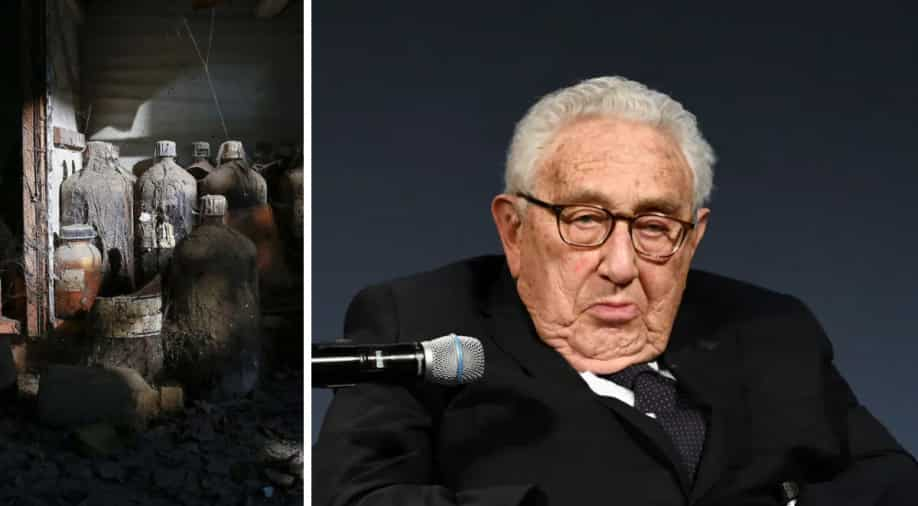Bhopal gas tragedy and Henry Kissinger's controversial legacy of secretive dealings
Story highlights
Kissinger's connection to Union Carbide became evident through his consulting firm Kissinger Associates which took on Union Carbide as a client following the catastrophe. The firm lobbied persistently on behalf of Union Carbide, engaging in delayed negotiations and the legal battles.
The recent passing of US diplomat and former secretary of state Henry Kissinger has reignited discussions about his involvement in global affairs. Kissinger has left behind a controversial legacy and one such episode links the diplomat with what transpired in the wake of the 1984 Bhopal gas tragedy in India.
For the new generation, the starting point to understand the tragedy could be the web series The Railway Men, which was released on Netflix on November 18, 2023. It encapsulates the entire tragedy that claimed thousands of lives in the central state of Madhya Pradesh, while also leaving a lasting tragic impact on generations to come.
The tragedy which took place on the intervening nights of December 2 and 3, 1984, was caused by a deadly leak of methyl isocyanate gas from the Union Carbide factory in Bhopal. It resulted in over 3,000 fatalities and affected more than 100,000 individuals.
trending now
People living in the widespread area surrounding the factory went through the horrors of respiratory ailments, skin burns and blindness. Many others reportedly died gasping for breath.
How is Kissinger linked with Bhopal gas tragedy?
The chairman of Union Carbide Warren Anderson was arrested, only to be subsequently released on bail. The Indian government pursued a claim for $3.3 billion in damages against Union Carbide in a New York district court.
Kissinger's connection to Union Carbide became evident through his consulting firm Kissinger Associates which took on Union Carbide as a client following the catastrophe. The firm lobbied persistently on behalf of Union Carbide, engaging in delay tactics and prolonged legal battles.
In 1988, Kissinger backed an increased payout for the victims of the tragedy, if an out-of-the-court settlement was reached, reports said.
A revealing letter from Indian industrialist JRD Tata to then-prime minister Rajiv Gandhi in May 1988 further exposed Kissinger's deep involvement in the compensation negotiations for the victims that "would effectively counter any attack or criticism".
"Dr Henry Kissinger, who is a leading member of the Committee and a good friend of mine, is, as you may know, a consultant and adviser to many governments and large corporations, including Union Carbide in America. He told me of their and his own concern at the long delay in reaching an agreement on the amount of the compensation to be paid to the victims of the Bhopal disaster," Tata's letter read.
Watch | US Secretary of State Antony Blinken lauds India on probe, says 'looking forward for results
However, as per reports, the $470 million settlement faced widespread condemnation for being woefully insufficient in addressing the scale of the tragedy. Criticisms are also centered on the dropping of all charges against Union Carbide and its managers. However, that was overturned by the Supreme Court in 1991.
(With inputs from agencies)

















